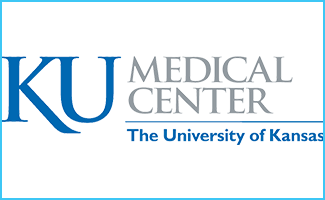
Sunday evening is lab night in Dr. Jay Vivian’s kitchen. His assistant is his twelve-year-old daughter. Whether it’s a recipe in the kitchen or a prototype in the lab, the two of them discuss the important parts of the plan and the formulas that must be followed for a successful result. They also talk about different ingredients and how they react to each other. Most importantly, they identify what modifications will result in a takeout pizza and aim to avoid them. These hours every Sunday have become an important ritual for his family.
Jay L. Vivian, PhD is a Research Associate Professor and Scientific Director at the Transgenic and Gene Targeting Institutional Facility at the University of Kansas Medical Center. He works closely with a team of researchers currently focusing on neurodevelopmental and pediatric neurological disorders, such as Tourette’s syndrome. His research uses genetic sequencing from children with these disorders and studies the variation to understand it in a laboratory setting. He studies these differences with both mice and stem cell models, with the aim of determining if these difference cause the patient’s disorders.
“One of the things we are trying to take advantage of here is new technologies,” Vivian says. “We don’t want to be doing research that is 10 or 20 years old.” His team uses CRISPR-Cas9 based genome editing methods to speed up the generation of their animal and stem cell models. CRISPR-Cas9 is a simple yet powerful tool for editing genomes. This technology allows researchers to easily alter DNA sequences and modify gene function.
He enjoys being part of the Kansas City region where clinicians and researchers from KU, MU, Children’s Mercy and UMKC can provide a network of collaboration to further their mutual research. Vivian’s portion of these collaborations is to work on the early discovery stage and develop the models to allow clinicians to better treat their patients. Historically, the researchers and clinicians have been separated in their work, but Vivian says the more collaborative environment accelerates the process and makes it more successful. “I’m excited to see in the next 5-10 years how much more quickly we can get these things out of the laboratory and into the hands of clinicians for potential patient treatments,” he said.
Vivian grew up on a farm outside a small town in Northern Illinois. He was surrounded by biology at every turn. He believes that this immersion seeded his interest in science early on. His parents both made it an important goal for him and his siblings to go to college. “My parents told us to do what we wanted to do as long as we could support our families.” Vivian said.
After graduating from high school in 1989, he began college at the University of Illinois and did his graduate work at the University of Texas in Houston at the MD Anderson Cancer Center, where he met his wife. She had just moved to work in the lab one floor below him, but they actually met at an organizational meeting for a co-ed softball team he was coaching. Upon graduating in 1999, the couple moved to Chapel Hill as he completed his post doctoral fellowship at the University of North Carolina. In 2005, shortly after the pair married, they moved to Kansas City. “Kansas City is a fantastic town to live in. The quality of life, and the quality of schools, really met our needs.” Vivian said. His wife is also a scientist and works for the Cancer Biology Department at KU. Vivian says he was pleasantly surprised with how the organization understood and appreciated the recruitment of one, often means two. “Scientists interact with other scientists and marry other scientists,” he said.
Dr. Vivian proudly serves on the board of directors of a rare disease advocacy group, RareKC. They bring local families together that are affected by rare diseases, providing support and driving research, and is among the first of its kind in the country.
He encourages his daughter to study science as an avenue to explore creativity. He discovered different science classes during college to try to find his path. He only found his interest in genetics because his schedule didn’t accommodate the class that he initially wanted to take. “Explore new things and you’ll be pleasantly surprised by what you enjoy,” Vivian said. You may be amazed by how a small tweak in the recipe will change the course of your life.